A Brief History of Life in Victorian Britain (49 page)
Read A Brief History of Life in Victorian Britain Online
Authors: Michael Paterson

relationship with John Brown
23
relationships with prime ministers/governments
6
,
8
,
13
,
24–6
shyness
26
view of colonial subjects
29
voice
6
‘Widow of Windsor’
21–4
see also
Royal Family
Victorian era
as ‘golden age’
xiii–xiv
‘a grand triumphal march’
xi–xxvi
use of term xv
Vincent, Mr
189–90
visiting cards
196
,
198
,
200–2
,
205
water closets
97–8
‘water gardens’
101
Webb Ellis, William
264
Webb, Philip
104
Wellington, Duke of
73
,
265
,
281
,
309
,
325–6
,
337
whiskers
232–3
Whyte-Melville, George
233
Wilberforce, William
162
Wilde, Oscar
xx
Wilhelm II (German Kaiser)
31
,
150–1
,
199
,
288
Williamson, Mrs Harcourt
149
,
150
‘Widow of Windsor’
21–4
Windsor and Slough railway
117
Wingfield, Major Walter
274
Wollen, William Barnes
311
Wolseley, Sir Garnet
325–6
,
329
,
330
women
Bryant and May’s match factory strike
42
charity work
167–8
cheese
195
clerks
242–5
clothes
148–50
,
215–18
,
221
,
249–50
cyclists
148–51
emancipation
25
hair styles
220–1
hostesses
202–3
household management
73
leaving/visiting cards
196
,
198
,
200–2
and ministers of religion
175–6
morning calls
196–9
sports
272–3
writers
292
see also
courting; marriage; servants
Wordsworth, Bishop of Lincoln
181
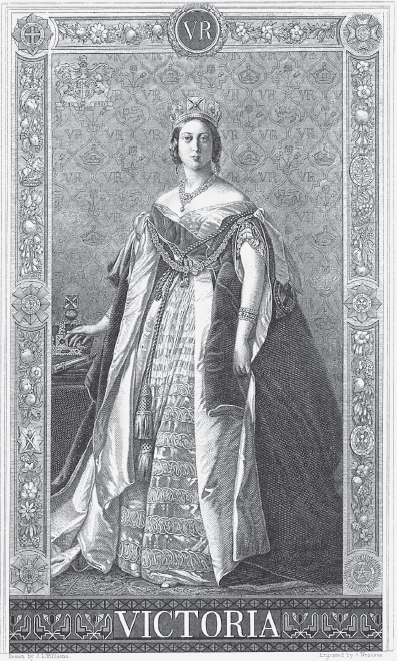
Symbol of an era: The Queen, depicted in early middle age by the doyen of European court painters, Franz Xavier Winterhalter.
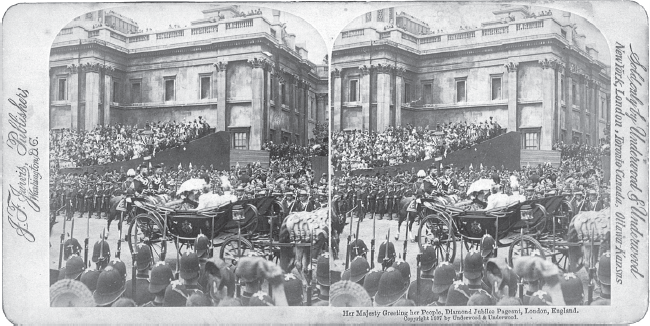
A stereoscopic view of the Diamond Jubilee procession passing the National Gallery, 22 June 1897. This event was more than an anniversary; it was a huge celebration of the British Empire and a summing-up of the Victorian age.
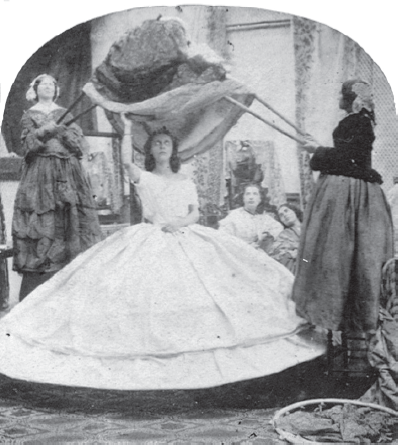
Putting on a crinoline, 1850s. Though this is a particularly monstrous specimen, it conveys the sheer impracticality of any ‘cage skirt’. One of its component hoops can be seen on the right.
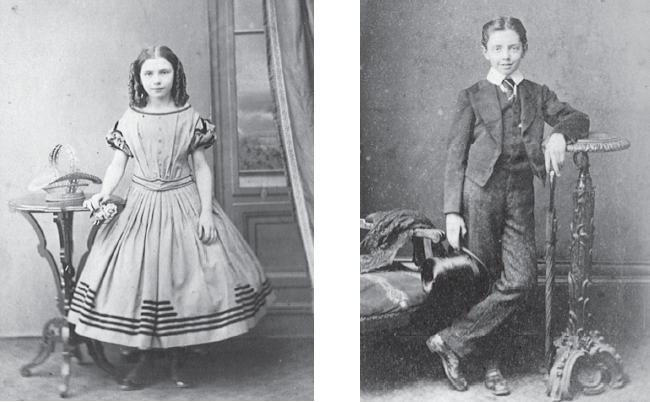
Though Victorian children, like those of previous eras, were often dressed as miniature adults, short jackets and sailor suits or dresses increasingly gave them a distinctively juvenile appearance. The young man in an Eton collar is C.T. Studd, later a cricketer, evangelist and missionary, seen here (appropriately) as an Eton boy.
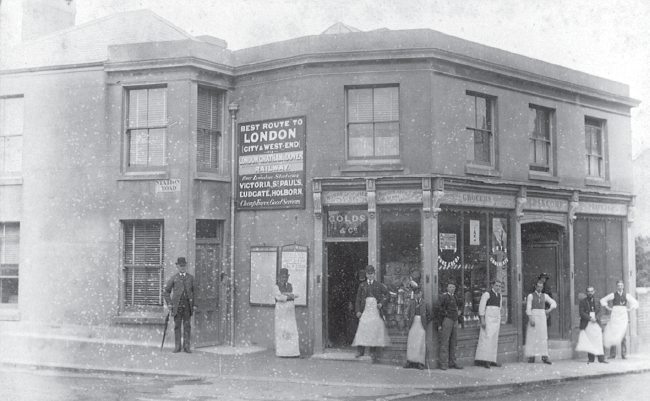
A Victorian corner grocer’s. One is struck by the large number of staff for such a small establishment, and by the smartness of the men (for there are no women). This store is still flourishing at Walmer in Kent.
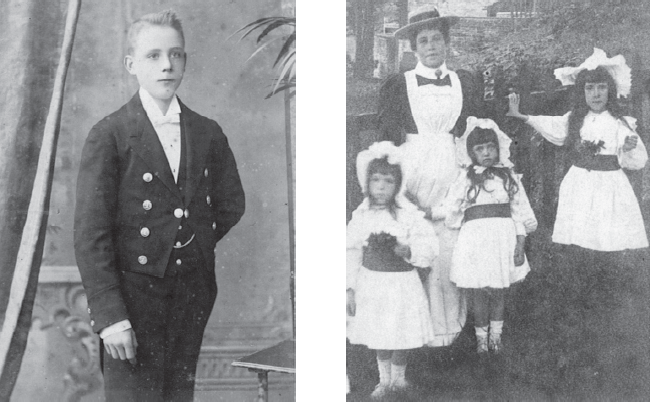
It is often assumed that servants led a dull and cowed existence, yet this young man – a page or footman in a fashionable quarter of London – is proud enough of his livery to be photographed in it. The nursemaid pictured on the right is permitted to wear a stylish straw hat while in the garden with her charges.
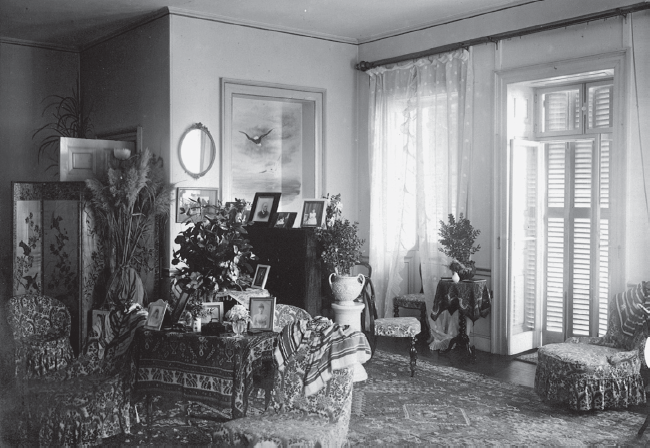
Interior. By the time this was taken, in the 1890s, rooms had lost much of their darkness and clutter. Here there are no heavy items of furniture or curtains, though there is still the characteristic accumulation of pictures and knick-knacks. The screen was an essential piece of household equipment, for combating draughts.
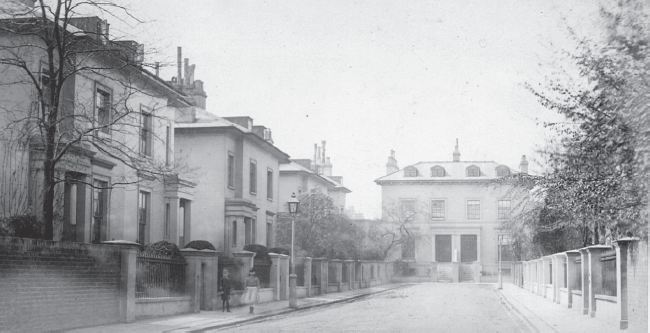
. . . and exterior. Albert Place, Kensington, in the 1870s. Many such streets were not accessible to the public, their privacy guarded by gates and uniformed watchmen.
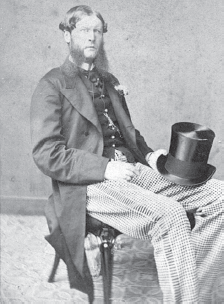
A gentleman of the 1870s still sporting the ‘dundreary’ whiskers that had been
de rigeur
in the sixties. Though he wears a top hat and sober frock coat, the somewhat shocking loudness of his trousers suggests that men’s formal clothes had not yet become the dark uniform of later decades.